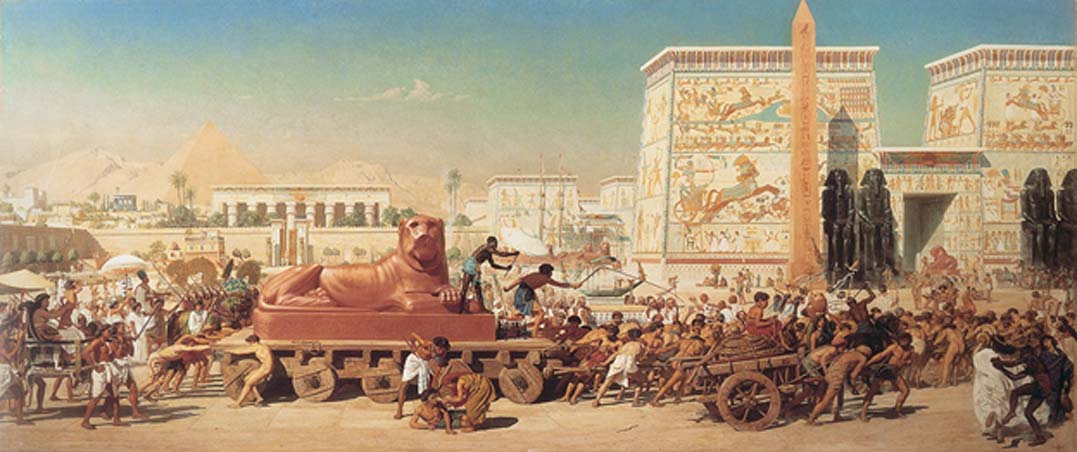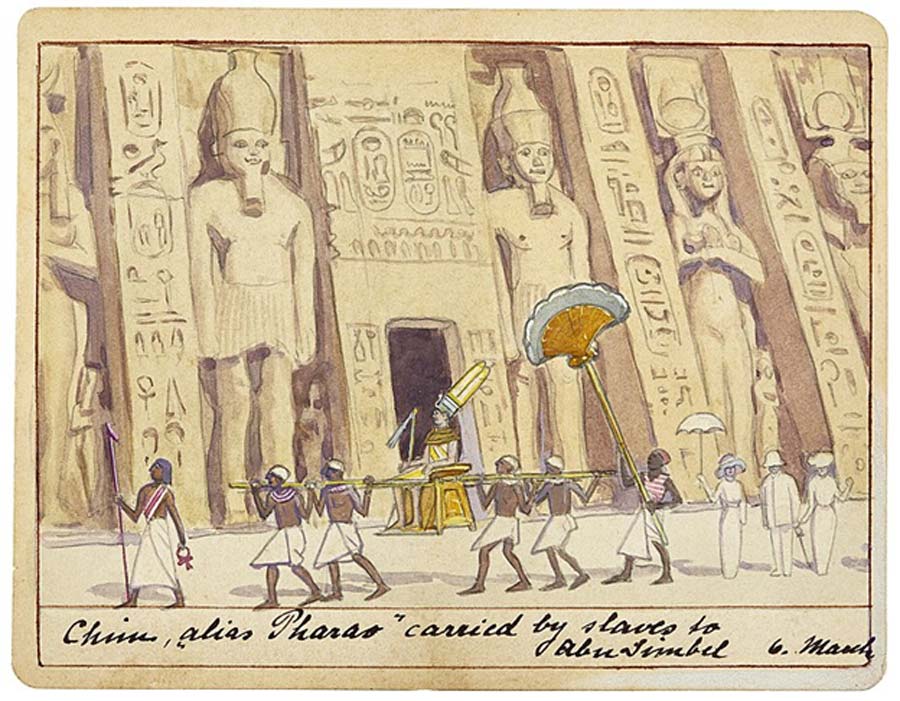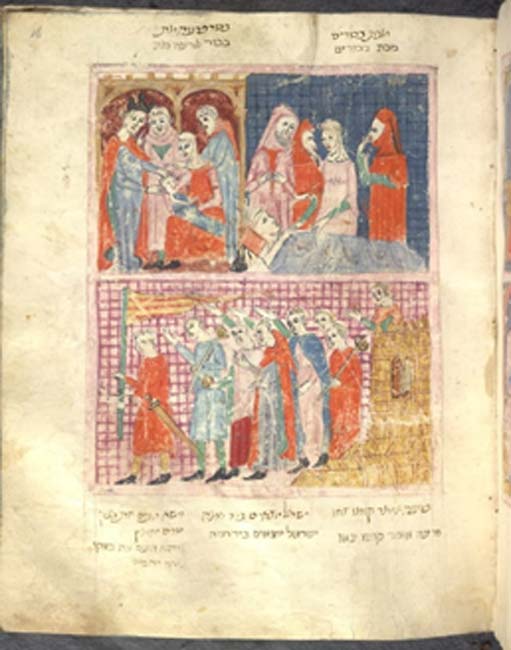
Exodus: Were the Israelites Slaves in Egypt or Not?
The Book of Exodus has intrigued churchgoers, academics and everyday readers. The approach to its content varies; an apologetic approach includes a literal interpretation of the Bible however a minimalist approach suggests the stories in the Bible are not entirely factual. This study embraces the middle ground between the apologetic and minimalist approach from a secular military standpoint. The focus of this article is on the mass Hebrew exodus. The author does not dispute the fact that the Hebrew people left Egypt - the number that fled is in question. Using an alternate interpretation of eleph, the Hebrew word for ‘thousand’, combined with the known nutrition and medical practices of the Hebrews, provide an alternative population number than what is recorded in scripture.

Israel in Egypt by Edward Poynter (1867) (Public Domain)
Slaves or Freedmen: A Linguistic Debate
To determine whether the Hebrew people in Egypt were slaves that grew resentful of their masters or malcontent freemen abused by their employers, the author relied upon the Bible as well as the works of biblical scholars George E. Mendenhall, Abraham R. Besdin, and military historian Richard A. Gabriel. Gabriel, author of the Military History of Ancient Israel, made a statement that is often overlooked: “The Hebrew term used to describe the Israelites at their labors is avadim which in an obscure and irregular usage can connote ‘slaves’, but which more commonly translates as ‘workmen’ or ‘workers’ or even ‘servants’. The linguistic argument is interesting but is not definitive.”
Furthermore, the books of Exodus and Numbers suggest something other than outright slavery. In the Book of Exodus, the Hebrews grumble at Moses after he led them out of Egypt, stating: “We wish Adonai had used his own hand to kill us off in Egypt! There we used to sit around the pots with the meat boiling, and we had as much food as we wanted. But you have taken us out into this desert to let this whole assembly starve to death!” In the Book of Numbers, the Hebrews state: “We remember the fish we used to eat in Egypt - it cost us nothing! - and the cucumbers, the melons, the leeks, the onions, the garlic! But now we are withering away, we have nothing to look at but this man.” The term avadim along with the Hebrews’ mood after leaving Egypt, speak volumes and raise many questions concerning their true status among the Egyptians. The real issue is whether slavery was an institution in Egypt, or not.

Inscription: Chim “alias Pharao” carried by slaves to Abu Simbel by Charles Deering? (1912) Vizcaya Museum (CC BY-SA 3.0)
There are two ways to look at slavery when it comes to the inhabitants of ancient Egypt. Were the Hebrews slaves in Egypt? The Hebrews were not subservient to the Egyptians but rather to the state; that is the pharaoh. Therefore, the nature of slavery in Egypt, according to Besdin: “operated like a technological machine, with all people reduced to useful cogs.” At the time of the exodus, Egypt possibly had a population of useful cogs between seven to nine million people. Such a population could easily staff the military and governmental jobs needed to secure the kingdom and work the pharaonic projects without hindrance. There was no shortage of manpower and the need for a system totally dependent on slavery was for the most part unheard of. In other words, Egypt was not totally slave dependent. Moreover, with the exception of defeated armies, Egyptian religion and law forbade outright slavery. During wars of conquest and occupation, the Egyptians enslaved defeated armies along with their civilian noncombatant counterparts. However, slaves in Egypt, such as Hebrews, were not devoid of rights. They could own property, marry free women, have children, and if they reached a certain level of prosperity, they could employ their own servants. Nevertheless, their privileges did not include free movement.

Full-page miniature, upper register: the tenth plague: the death of the first-born including Pharaoh's son, lower register: the Israelites leaving Egypt. Image taken from f. 16 of Haggadah for Passover (the 'Sister Haggadah'). Written in Hebrew. (Public Domain)




